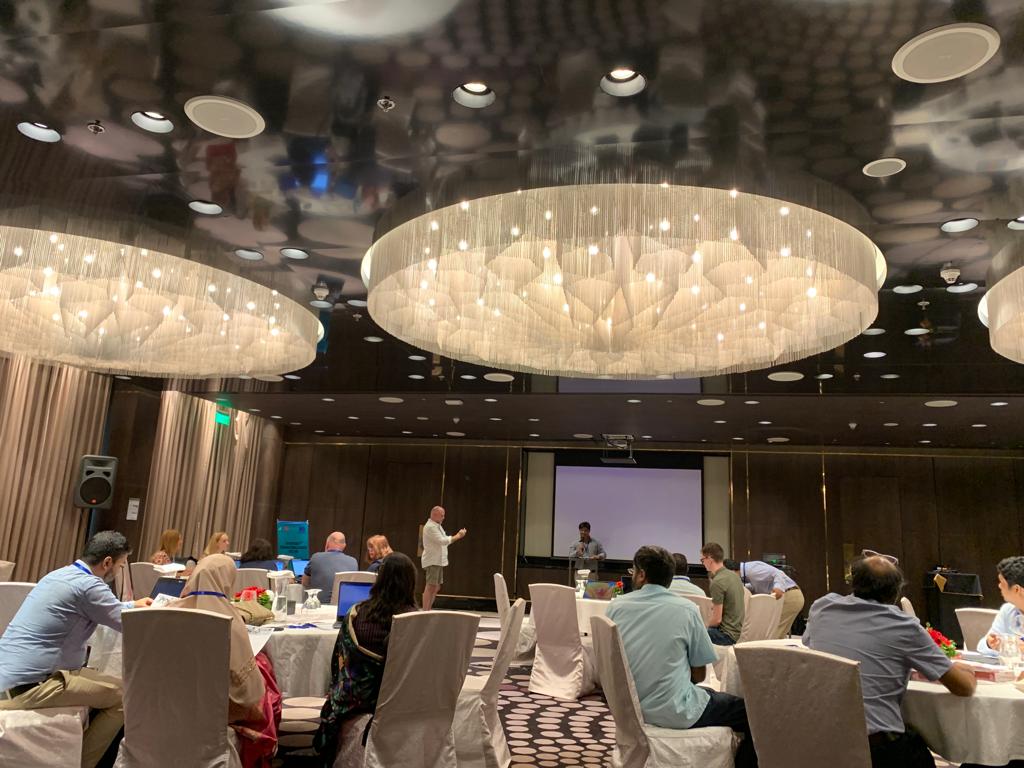In order to promote inclusivity in the higher education institutions in Bangladesh and India, a project named ‘DiversAsia’, partnered with 11 universities and institutions from 8 Asian and European countries, was started in January 2021. As a project partner, the Institute of Information and Communication Technology (IICT), Bangladesh University of Engineering and Technology (BUET) hosted the 7th Transnational Meeting of the DiversAsia project on 18-19 September 2023 in Dhaka, in a significant stride towards fostering international collaboration and knowledge exchange. The project is co-funded by Erasmus+ of the European Union. The meeting, held at the Crystal Ball Room, Hotel Intercontinental, Dhaka, Bangladesh, convened esteemed academicians, researchers, and professionals from various international institutions, including Nottingham Trent University, UK; Indian Institute of Technology Bhubaneswar (IITB) and Vellore Institute of Technology (VIT), India; Plovdiv University, Bulgaria; Gazi University, Turkey; SoftQNR and NARHU, Serbia; PhoenixKM BVBA, Belgium; BUET Jahangirnagar University (JU) and the University Grants Commission of Bangladesh (UGC), Bangladesh.
The event was inaugurated with a warm welcome by Prof. Dr. Md. Saiful Islam from IICT, BUET, and followed by an inaugural speech by Prof. Dr. Biswajit Chanda from UGC, Bangladesh. The first day of the meeting was marked by general discussions among the project partners, led by Prof. Dr. David Brown from NTU, on project management (Work Package 5), focusing on the advancements and future plans of the DiversAsia project. Dr. Mufti Mahmud from NTU talked about DiversAsia Publications, and Dr. Sabarimalai Manikandan from IITB discussed the development of the white papers. The attendees were also engaged in discussions on the review of the DiversAsia toolkits, the development of an engagement app, and an accessibility checker developed by the partner institutions.
On the second day of the meeting, reports on piloting and preliminary findings were presented by the IITB, VIT, BUET, and JU teams. Updates from the European partners, including Plovdiv University, Gazi University, and the University of Latvia, Latvia, were also shared. The discussions further delved into the technical development of the DiversAsia project, including the development of a text-to-speech conversion app by IITB. The meeting was concluded with preparations for the upcoming conference on the following two days and a press conference.
The meeting served as a pivotal platform for the exchange of insights and the formation of collaborations, contributing to the overall success of the DiversAsia project. The discussions and deliberations during the meeting were poised to drive the project to new heights, enabling it to make significant contributions to societies and communities across the globe.

